Griffin The




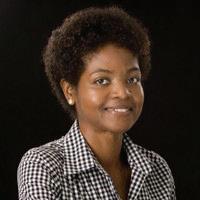
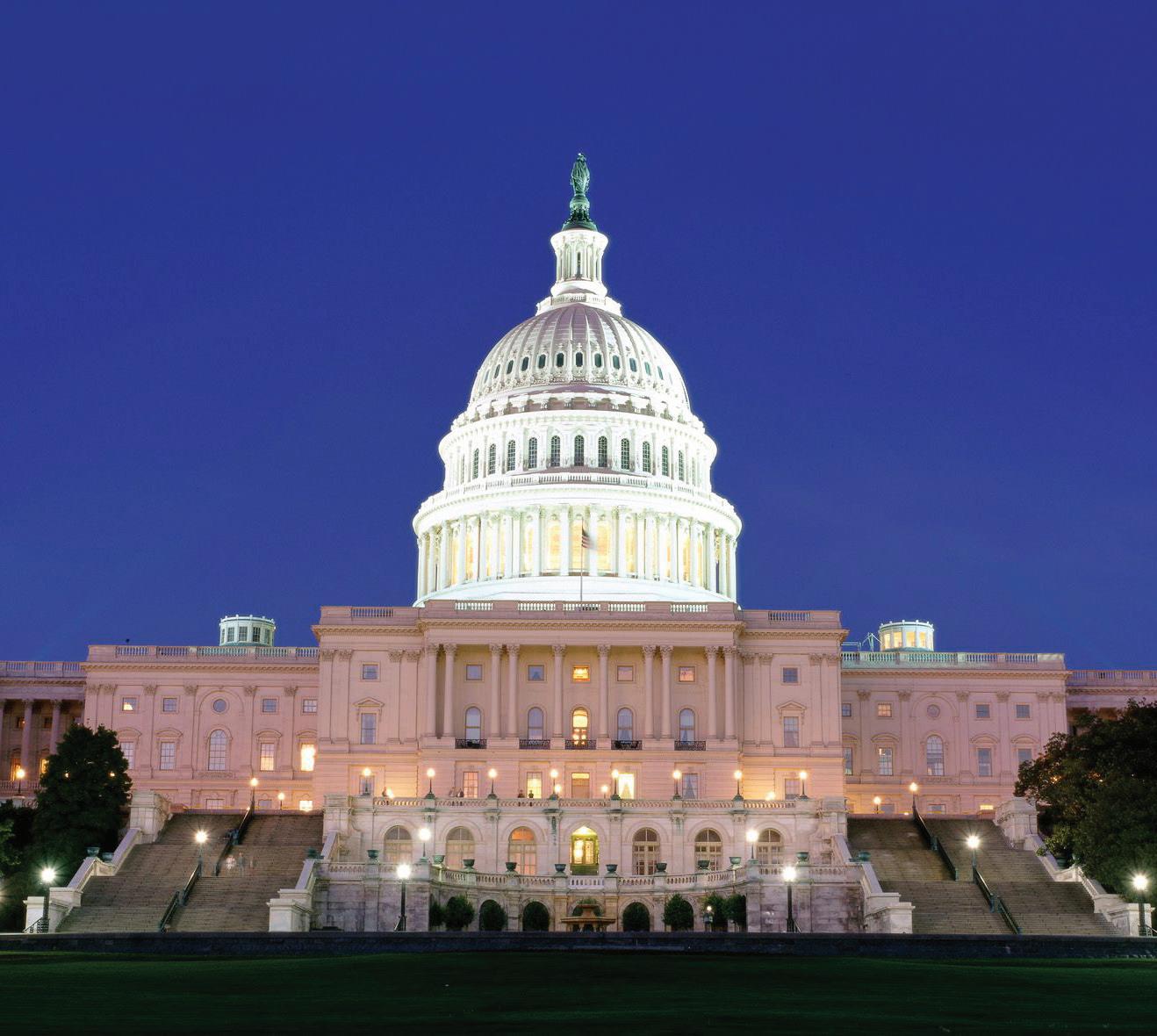
Read the Spring 2021 Griffin Forum review on page 5.
 A
for the Robert P. and Marjorie Griffin Endowed Chair in American Government
Major Garrett, CBS News Forum Moderator
Molly Ball, TIME Darlene Superville, Associated Press
Editors David Rutledge Casey Hadaway
Contributing Writers David Rutledge Casey Hadaway
A
for the Robert P. and Marjorie Griffin Endowed Chair in American Government
Major Garrett, CBS News Forum Moderator
Molly Ball, TIME Darlene Superville, Associated Press
Editors David Rutledge Casey Hadaway
Contributing Writers David Rutledge Casey Hadaway
Designer & Web Editor
Sarah Buckley, M.A. ’05 Printer CMU Printing Services
Contact information
Department of Political Science and Public Administration
Anspach Hall 247 Mount Pleasant, MI 48859
Phone: 989-774-3442
Email: PSC@cmich.edu Web: class.cmich.edu/griffin
With each generation comes new challenges. Our task as CMU faculty and staff is to do our very best to prepare our students to meet these challenges by being participatory citizens, critical thinkers, and visionary leaders. Nobody promised that the road would be easy, but the circumstances of a worldwide health crisis has made it unusually difficult to deliver a traditional teaching and learning experience.
The pandemic of 2020-21 has caused us to change a host of procedural and operational protocols in our work, play, worship, and family life, but has it also changed us as individuals?
ATTENTION TO WHAT THEY ARE TELLING US.
On a personal note, I am completing my last semester of a four-year assignment as the Griffin Endowed Chair in the Political Science & Public Administration Department, and this is my last issue as editor of The Griffin magazine. Having served most of my adult life holding elective office, I have long dreamed of someday sharing my public service experiences by mentoring young people. CMU has allowed me to live that dream.
The Griffin is published by the College of Liberal Arts and Social Sciences and the Department of Political Science and Public Administration at Central Michigan University.
CMU, an AA/EO institution, strongly and actively strives to increase diversity and provide equal opportunity within its community. CMU does not discriminate against persons based on age, color, disability, ethnicity, gender, gender expression, gender identity, genetic information, height, marital status, national origin, political persuasion, pregnancy, childbirth or related medical conditions, race, religion, sex, sexbased stereotypes, sexual orientation, transgender status, veteran status, or weight (see cmich.edu/ocrie).
Printed by CMU Printing Services.
Produced by CLASS: The Griffin - 275 (6/2021)
As I thought about this question in relation to myself, I started to wonder how students might be thinking about these unusual times—what added complexities they might be facing. So, I decided to ask them. In the pages that follow, they articulate their thoughts, feelings, and impressions about issues concerning the impact of the pandemic on learning and mental health, the events of January 6, healing a divided country, voter suppression, and how to remain friends with people who hold radically different political opinions. IT MAY BE WISE TO PAY
This space does not permit me to name all the people I’d like to thank for helping to make my experience at CMU so meaningful and amazing. However, I would like to acknowledge that I owe a debt of gratitude that can never be fully paid to the following: Gary Randall, former Griffin Chair; Prof. Larry Sych; Dr. David Jesuit, Department Chair; Dr. Richard Rothaus, Dean of the College of Liberal Arts and Social Sciences; and Sarah Buckley, Communications Coordinator & Web Developer. Thank you for the privilege of being a part of the CMU family.
David E. Rutledge, Griffin ChairThe following individuals have served as the Robert and Marjorie Griffin Endowed Chairs in American Government at Central Michigan University:
Craig Ruff (2000-2003)
William Ballenger (2003-2007)
Gary Peters (2007-2008)
Maxine Berman (2009-2013)
Gary Randall (2013-2017)
David Rutledge (2017-2021)
Andrea LaFontaine, executive director of the Michigan Trails and Greenways Alliance, has been named Central Michigan University’s next Griffin Endowed Chair in American Government. The Griffin Chair leads the university’s efforts to elevate political awareness and activity among students, faculty and citizens.
As chair, LaFontaine will teach two university courses and host community forums on topics related to Michigan government and policies. She replaces David Rutledge, who has held the position since 2017.
LaFontaine has a strong connection to CMU. She completed a bachelor’s degree in political science in 2009 and a Master of Public Administration degree in 2011. In 2014, she was recognized as a CMU
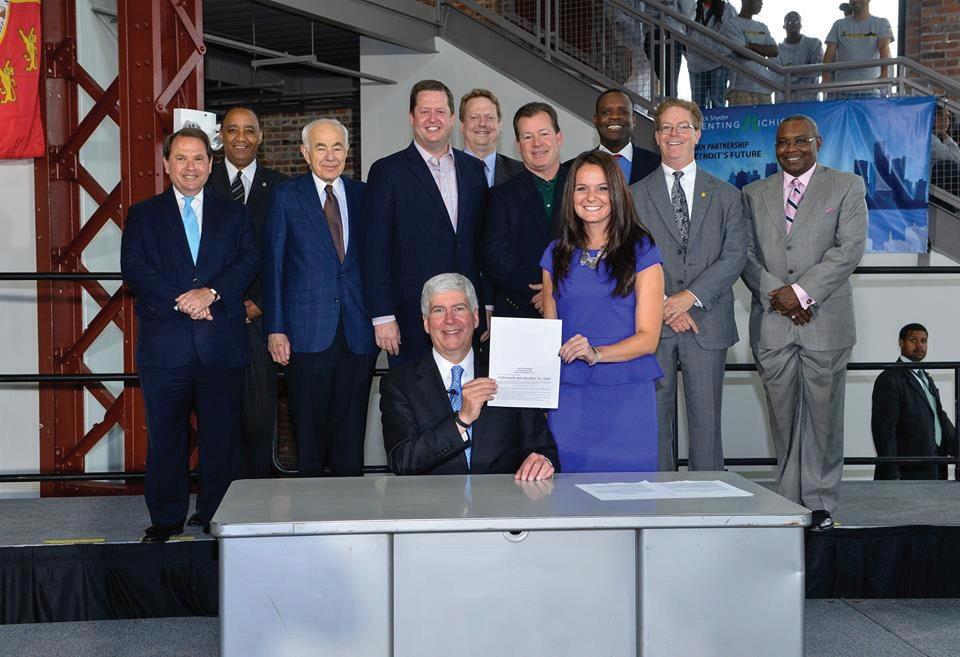
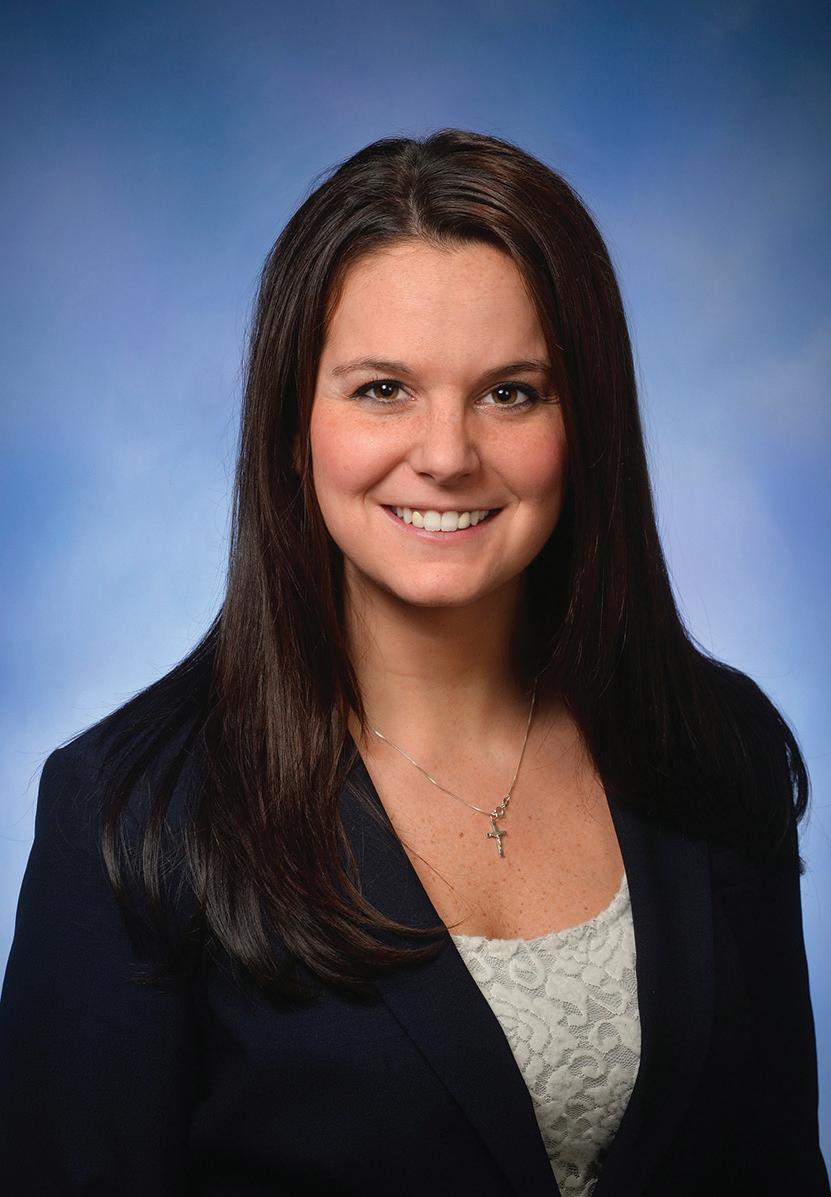
10 Within 10 recipient. She also was a student in courses taught by past Griffin Chair Bill Ballenger.
“I remember his class sparking a deeper interest, understanding and awareness for the political and legislative process in Michigan,” LaFontaine said. “I also have a deep admiration for the Griffin family. The Griffin name is synonymous with integrity, and it is an honor to serve in a role associated with Senator Griffin’s legacy.”
LaFontaine spent much of the past decade working in the state Legislature, starting as an intern, then as a staffer and eventually as an elected official. She was elected to the state House of Representatives in 2010 and served three consecutive terms representing constituents in Macomb and St. Clair counties.
After leaving office in 2016 due to term limits, she worked for the Michigan Department of Natural Resources and in 2020 became executive director of the Michigan Trails and Greenways Alliance. She also has served as an election inspector and a parks and recreation commissioner.
“All of these experiences have shaped and continue to shape my perception and understanding of our democratic process,” LaFontaine said.
Established in 2000, the Griffin Endowed Chair honors CMU alumni Sen. Robert P. Griffin, who graduated in 1947, and Marjorie Griffin, who graduated in 1944. LaFontaine is the seventh person to hold the position.
A friend recently invited me to meet with his neighborhood service group to facilitate a conversation about a developing problem that was straining relationships between friends within the group. My friend indicated that some members of this otherwise homogeneous group were becoming upset with other members whose views didn’t align with their own when the conversation turned to politics. Some even categorized the contrary views of others as conspiracy theories. The acrimony between members was creating intense animosity and making it challenging for the group to continue its neighborhood services activities.
One of the most pressing problems that besets our politically divided country is the disrespect or even hate some people display toward those who believe differently than them. This problem goes far beyond the edicts of civility and has caused divisions within families, between friends, co-workers, and our political leaders.
Even more disconcerting are the barriers this behavior erects to individual trust and fact-based communication. It can even create a fertile breeding ground for misinformation to be spread and believed. Among public policymakers,
One of the most pressing problems that besets our politically divided country is the disrespect or even hate some people display toward those who believe differently than them.
the results can manifest itself in a lack of societal problem solving. Within families and among friends and co-workers, the result can be a loss of friendships, or in some instances, strained relationships.
I began the conversation with the neighborhood group by discussing the process by which we develop, hold on to, and sometimes change our beliefs, ideas, and values.
If we want to hold meaningful conversations with people whose opinions differ radically from our own, especially involving “hot button” issues, it helps to understand the process by which individuals make value judgements, decisions, and evaluations about what they believe.
We must also be willing to hold a mirror up to ourselves before criticizing others about their beliefs. All of us are guilty at some point of pronouncing thoughts, beliefs, and values that don’t appear to match up with the attitudes and behavior we publicly display.
In 1957, psychologist Leon Festinger published his theory of cognitive dissonance (Festinger L. A Theory of Cognitive Dissonance. Stanford University Press; 1957). He proposed that people experience discomfort when they hold conflicting beliefs or when their actions contradict their beliefs.
In an article published in Medical News Today, Jayne Leonard (https:// www.medicalnewstoday.com/ articles/326738, October 21 2019) gives some examples of cognitive dissonance:
• Smoking despite being aware of the adverse health effects of tobacco use.
• Telling a lie despite the person thinking of themselves as honest.
• Purchasing a new car that is not fuel efficient, despite being environmentally conscious.
• Eating meat while also thinking of themselves as an animal lover who dislikes the thought of killing animals.
Understanding how conflicting beliefs impact our decision-making process can help reduce anxiety when discussing passionate issues with others who hold opposing views.
Trying to discuss factual information is often useless because people who want to maintain behaviors that don’t appear to align with their perceived values will avoid facts. Not only do they avoid facts, they tend to rely on anecdotal information to support their beliefs.
• Take people as they are, not how you think they should be.
• Listen carefully, and genuinely try to see the other person’s perspective—even if you don’t understand it or agree with it.
• Look for opportunities where mutual trust is required and demonstrated (true friendship cannot exist unless it is built on a foundation of trust).
• Trust begets loyalty. True friends are loyal without question, and remain friends beyond words, beyond distance and, beyond time.
In a democracy, it is important for us to be able to have civil dialogue about a broad spectrum of issues, especially those involving public policy.
Our spring 2021 Griffin Policy Forum went virtual with special guests Major Garrett , chief Washington correspondent for CBS News, Molly Ball, National Political Correspondent for TIME magazine, and Darlene Superville, veteran White House reporter for the Associated Press.
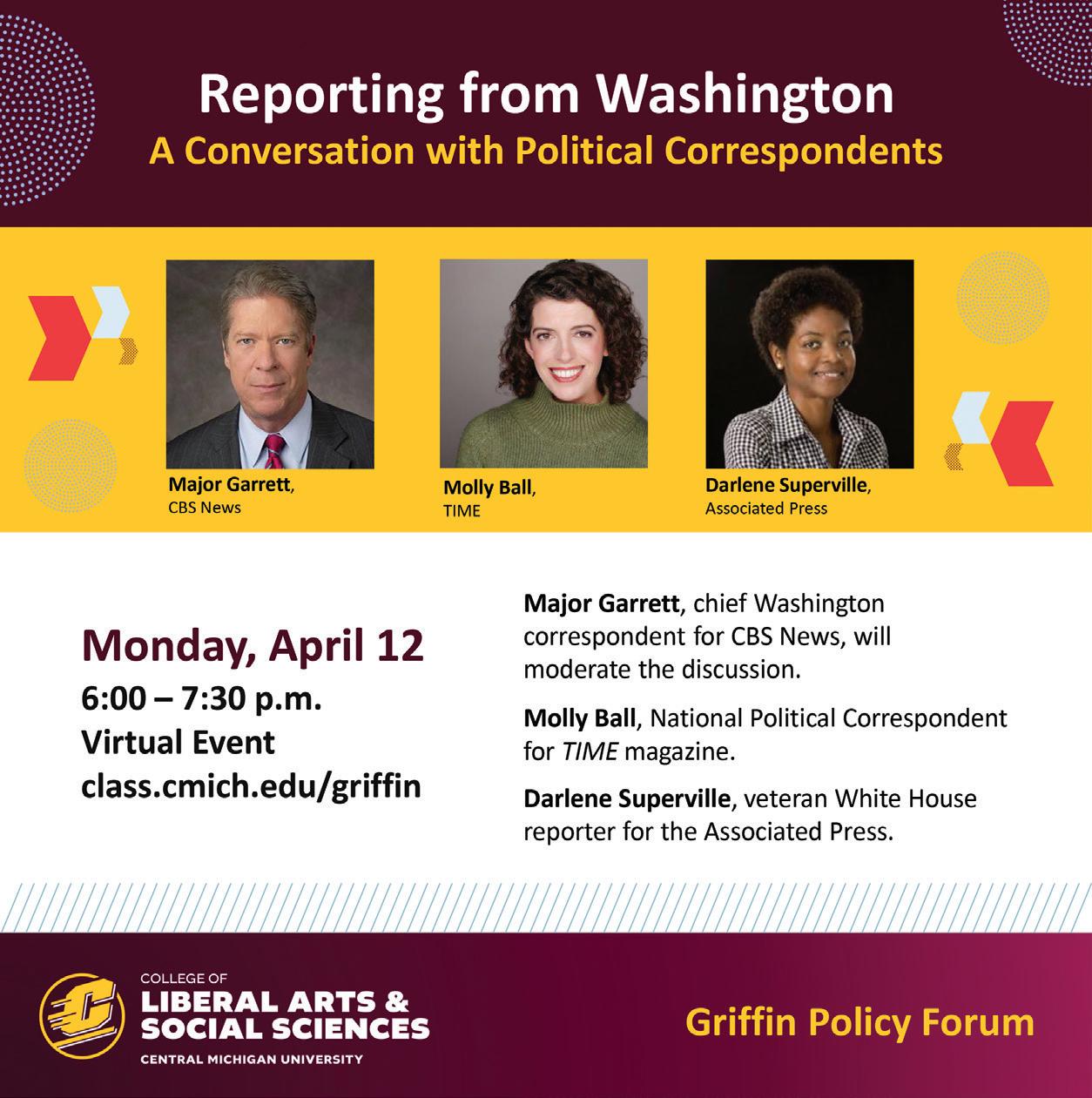
Garrett moderated the discussion, “Reporting from Washington: A Conversation with Political Correspondents.”
Garrett was named chief Washington correspondent for CBS News in December 2018. Previously, he served as the network’s chief White House correspondent. He also hosts “The Takeout,” a weekly multi-platform interview show on politics, policy and pop culture.

Ball is the author of Pelosi, a bestselling biography of the first woman Speaker of the House. Previously, she covered U.S. politics for The Atlantic and Politico
Superville has been part of a team of reporters providing coverage of the White House for AP members across the U.S. and around the world since 2009.
To view a recording of the event, visit class.cmich.edu/griffin.
• Mutual respect is the glue that holds the relationship together.
Irrespective of the relationship, having meaningful conversations and sharing ideas and experiences with one another is how we grow intellectually and creatively.
In a democracy, it is important for us to be able to have civil dialogue about a broad spectrum of issues, especially those involving public policy. Listening carefully and making a serious effort to understand others whose views, values, and beliefs may be different is necessary if we are going to thrive together in this “land of the free and home of the brave.”
Maxine Berman was a distinguished public servant who served in the Michigan House of Representatives from 1983 to 1996. She was on Central Michigan University’s faculty as the Griffin Endowed Chair in American Government from 2009 to 2013 and elected to the Michigan Women’s Hall of Fame in 2015. Maxine Berman was 71 when she passed on March 2, 2018.
To honor her legacy, the Department of Political Science and Public Administration established the Maxine Berman Academic Achievement Award in 2018. The award is presented to a student doing course work in political science who exhibits academic excellence, a strong interest in social justice, and a passion for public service.
The Maxine Berman Scholarship recognizes the academic accomplishments and promise of a student enrolled in the seminar courses (PSC 300-301) taught by the Griffin Chair. The awardee should reflect the public service qualities and social justice concerns epitomize by the Honorable Maxine Berman (April 17, 1946-March 2, 2018).
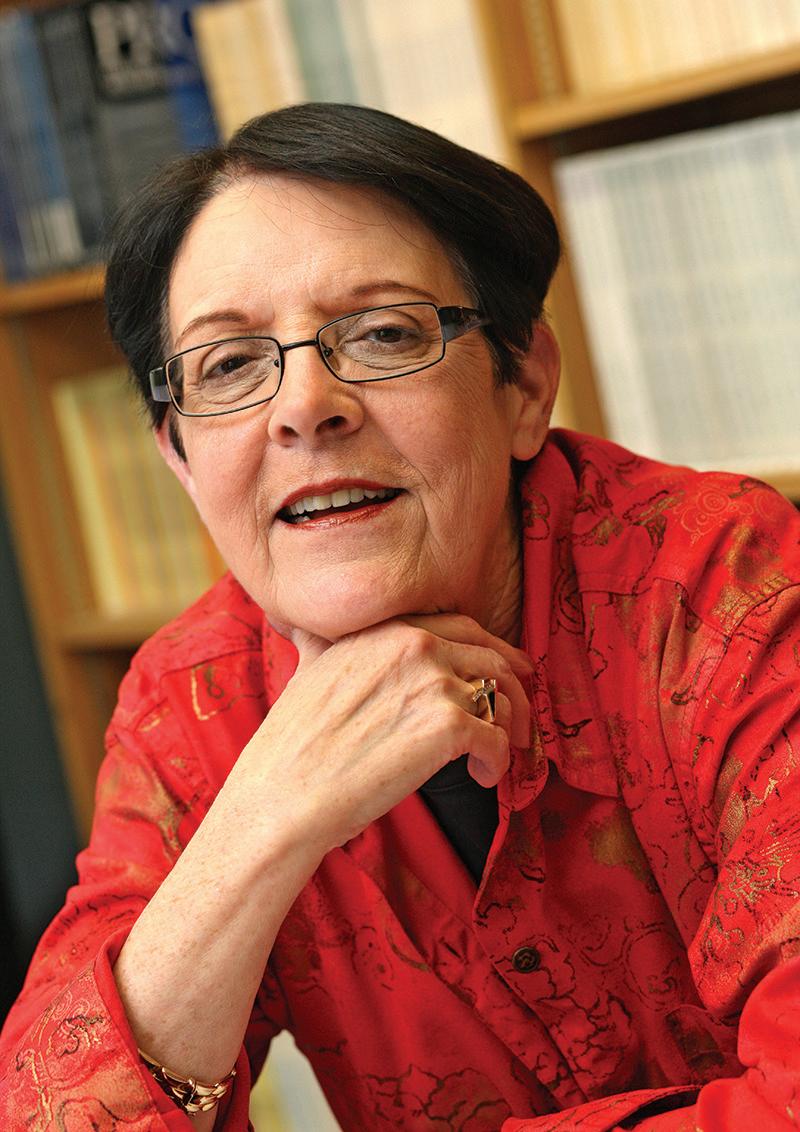
Kennedy Scott is the recipient of the 2020-21 Maxine Berman Scholarship Award. Kennedy is a Junior with a 4.0 GPA majoring in public health and political science. She is a leader who volunteers with organizations that have a community service focus. She is passionate about working to help resolve social justice issues.
Kennedy said recently, “My current major and involvements all center around social justice, which is my greatest passion, and the reason I am studying what I am.” Her commitment to serving others is
more than just talk. It is evident by the following:
• Coordinator of Alternative Breaks Program (a volunteer organization based around principles of equity, social justice, and inclusion).
• Helped develop a framework for an on-campus antiracism and social justice book club.
• Helps develop grants that focused on removing barriers to low-cost housing for students of color.
Kennedy is now working on developing a physical labor scale that would make all the Alternative Breaks Program locations more accessible to students with disabilities.
Looking forward, Kennedy says that she hopes to be an advocate for health policy and socially just causes. Based on her work ethic and passion for assisting others, Maxine Berman’s legacy will live on through the works of Kennedy Scott.
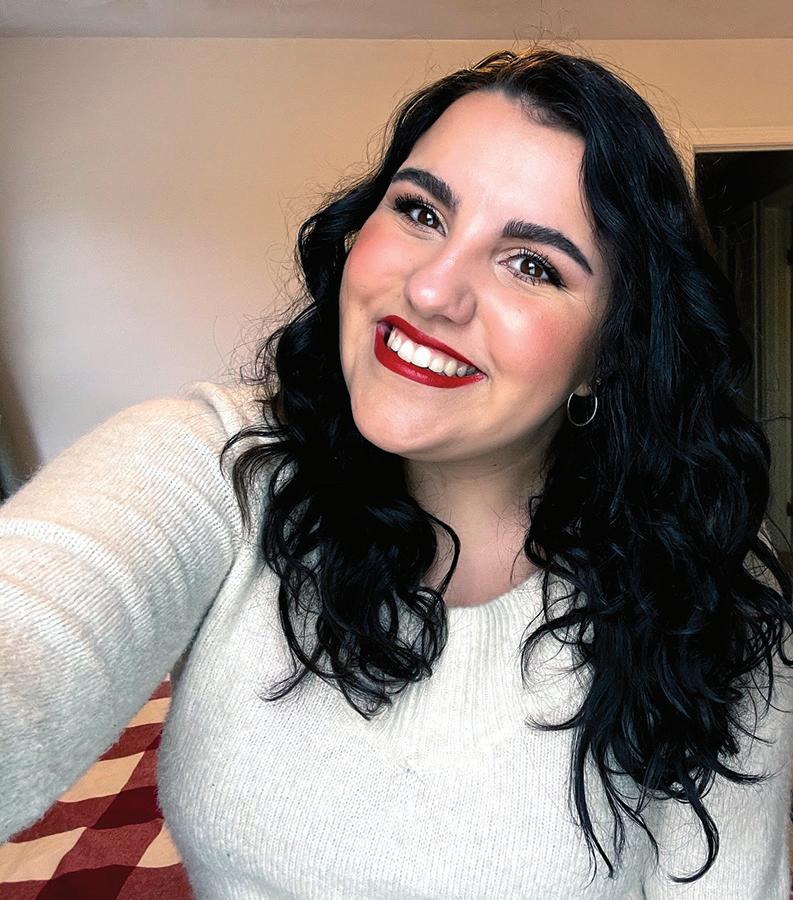
• The Award recognizes the academic accomplishments and promise of a student enrolled in one or both of the seminar courses taught by the Griffin Chair (PSC 300/301).
• Recipients will embody the qualities epitomized by Maxine Berman’s long public service to Michigan and reflect her concerns for social justice.
• Minimum GPA of 3.00 on a 4.0 scale.
Maxine Berman
April 17, 1946 - March 2, 2018
• The award will be made only if highly qualified applicants apply.
• Nominations are made by the Griffin Chair and, if there are multiple nominees, recipients are selected by the Department of Political Science and Public Administration.
Questions should be addressed to David Jesuit at 989-774-2795 or David.Jesuit@cmich.edu.
The recent political climate has led to rising tensions between people with opposing beliefs. Whether we are dealing with our friends, family, or strangers on the internet, it can be difficult to weather the stresses of political conversation and remain friends in the aftermath. Speaking from the perspective of a liberal college student from a conservative, rural town, confrontation with friends and family with differing views has become routine.
Quote selected by Kennedy ScottOne of the most grounding techniques I have learned from social psychology courses is to reflect on the impact of situation on political views. Understanding how they were raised, what types of people they were exposed to, and what privileges may shelter them helps me become more compassionate towards their beliefs rather than being dismissive. Next, try to find common ground, even if it seems impossible. No one likes poverty, unfairness, pollution, or racism. At least not the people we want to remain friends with. While our chosen methodologies for remedying these issues may be different, we all value those we love, and want to leave them in a world that is better than we found it.
Another constructive conversation tool is defining terminology. Concepts like privilege are hard to discuss when one person is unaware of its meaning and is instead bogged down in “hard work” rhetoric. Of course, it is important to come into these conversations with factual information, however, anecdotes are powerful in describing your stance on an issue. Additionally, active listening is crucial in meaningful dialogue. Do not listen to respond, listen to understand. After these conversations, reiterate to yourself how this relationship betters both parties.
Difficult, civil conversations are worth having when they allow for mutual growth and lead to a stable relationship among friends in opposition. However, above all else, know your limits. Sometimes, someone you considered to be a friend might hold deeply harmful belief systems that are unnegotiable to you. In these situations, your moral foundation may be stronger than your relationship, and it might be time to reevaluate that relationship for the sake of your overall wellbeing.
President Abraham Lincoln said these words 163 years ago after he had accepted the Illinois Republican Party’s nomination as that state’s US senator. He quoted these words from Matthew 12:25, referring to the Dred Scott decision of the previous year, which opened doors for slavery to become legal in all the U.S. states and all territories. If only Lincoln could see how true these words would ring still today in 2021.
The state of this country today is one that Lincoln could not have imagined. People have taken political differences to the extreme in everyday life, classrooms, and online chat sites. This is not a partisan party issue; this is an American issue. So many Americans, right and left, have lost sight of the humanity of their political opponents. This has caused the breakdown of families, friendships, and the workplace over recent years.
Aside from changing our own hearts, one solution to this nationwide issue is raising our children to respect and understand other points of view. Children are the life blood of our country’s future; we must give them the tools of civil discussion and empathy. Change needs to happen with each and every person. The work of President Lincoln must continue today in treating all people with the honor and dignity they deserve.
Olivia Ammerman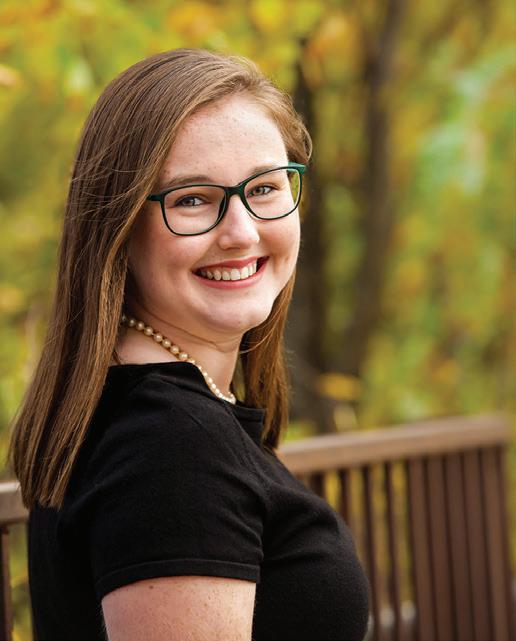
“Unless someone like you cares a whole awful lot, nothing is going to get better. It’s not.”
- Dr. Seuss, The Lorax
“A house divided against itself cannot stand.”
I distinctly remember saying goodbye to my college friends on March 6th, 2020 before flying home to Texas from Michigan for spring break. They insisted on giving me a hug, and I laughed, “I’ll see you in a week. We’ll be back in no time.”
Little did we know, we wouldn’t see each other for six months and be socially distancing for several months after that. Exactly a week later, COVID-19 was officially a pandemic, and my college announced we would be moving online until further notice.
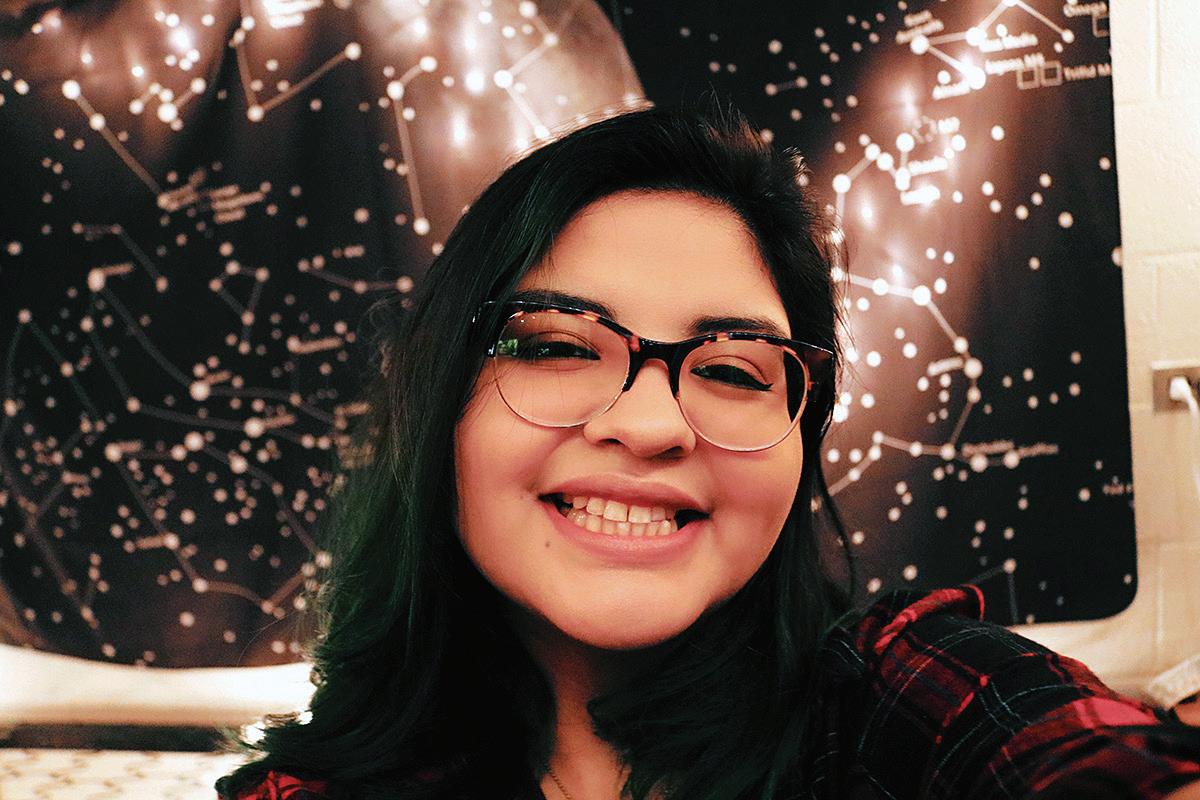
I remember being overjoyed to spend more time home, however my attitude toward moving to virtual classes soon after changed. I was hunkered down in my house, and I spent the majority of my days in my room alone, especially because I did not feel comfortable around certain family members due to opposing political opinions held in our household and toxic personalities.
Days and weeks started to glue together into a never-ending loop of boredom and I eventually was left with nothing but my thoughts and my three legged cat, Mona Lisa, every moment of each quarantined day after using up all my ideas to keep busy.
I noticed after a few weeks that my mental health was starting to deteriorate. Being diagnosed with major depression, anxiety disorder, insomnia, and obsessive compulsive disorder several years prior to the pandemic, I knew that being cooped up in the dark every day with no schedule was doing severe harm in the long run. I ultimately tried my best to stay busy and productive with a schedule. I painted several portraits, played piano, or watched a show or movie I hadn’t seen before.
Before supper, I usually went out for a bike ride until it got dark out. If I couldn’t sleep at night, I would write stories and poems or fall down a rabbit hole of Reddit or Twitter threads. My sleep schedule was absolutely off, and I would start my day around 6 p.m. and stay awake until 6 a.m. I also started an unhealthy relationship with food that resulted in my losing several pounds in a short period of time.
There was a week and a half when I completely shut my phone off so that I was away from all social media and the internet as a whole. I often thought about my friends who had worse living conditions, had family who were coming down with COVID-19, or had mental illnesses like myself.
I often wondered about those in abusive homes, or those not capable of doing homework because they had unreliable WiFi. I sympathised with the rest of the world because for once in my lifetime, we were truly all impacted and experiencing the same catastrophe.
In some aspects, it was heartwarming to know that I wasn’t alone in this pandemic. I wasn’t alone in being a college student worried about what the pandemic meant for my education. I wasn’t the only person in a home where I felt I couldn’t be myself or voice how I felt.
Through this pandemic and more importantly, during quarantine, I have learned and focused more on myself than I ever would have in years prior in the same amount of time. I have learned more about my community, more about the world, but above all, I’ve learned that through dark times, we will always persevere.
Since the COVID-19 pandemic started, we have had to make many changes to our everyday lives to ensure the safety of our peers. These changes have included remote work, remote schooling, and staying in our homes as much as possible.
These are only some of the big changes that have happened since the pandemic started, and along with these changes has come many failures. One of these failures, that I will be focusing on, is the failure to address the mental health crisis that we currently have on our hands due to the pandemic.
Quote selected by Adrienne Parks
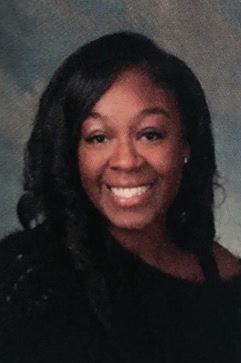
“But neither ambition, nor purposefulness, nor a drive for power had much to do with her candidacies.”
- Engines of Democracy by Alan Rosenthal
The pandemic has changed all our lives drastically. Now, many of us are forced to work from home, do school from home, and do leisurely activities from home. This has been a hard adjustment for many people because it is hard to work at the same place that you are supposed to relax. Along with this, many people are missing out on milestones like in person graduations, which can be disheartening. It is also important to remember that not all classes are fit to be taught in an online format, so that creates learning barriers.
When we are discussing school in specific, schools are not doing enough to address the mental health crisis that is arising from the pandemic. Central Michigan University provided us with wellness days that are spread out through the semester instead of giving students a spring break. During these wellness days many students have been given assignments that they are meant to do, or they must use the time to catch up on busywork that professors have given them.
These wellness days are not being used as a break as they were originally intended, they are being used to play catch up. Along with the issue of wellness days, many schools do not have enough mental health services to provide every student that seeks it. This is something that needs to be prioritized by schools at a time like this.
Overall, the pandemic has had a negative effect on people’s mental health. With having to isolate ourselves to keep people safe, leading to immense feelings of loneliness, while our everyday routines are being switched around, it is no wonder that people are struggling with mental health. What we need right now is institutions, like our schools and our government, to address the mental health crisis that is overtaking our country.
Wednesday, January 6th was the day a group that should be considered terrorist was able to get past all security and enter the United States Capitol Building. With the apparent support of former President Donald Trump, a damaging image of our American democracy was viewed around the world.
Some have claimed that this group was influenced by the choice of words Donald Trump used not only throughout his term, but especially through the last few weeks of votes being counted. To this day, Trump denies engaging in the incident. However, it is obvious to me that his careless choice of words caused this attack on our democracy. Hopefully, the country can recover from this and become better.
The past year has been defined by mass demonstrations and political violence in the United States leading many of us to wonder: why now? The armed protests in the Michigan Capitol in May, racial injustice protests through the summer, and the storming of the U.S. Capitol in January have dramatically displayed the divisions in the country all in such a short time. Perhaps the lockdown has made it more explosive as it has made people more isolated than ever while also leading to more time online than before, while dramatic shifts in policy have brought public attention and scrutiny to politics.
- Woodrow WilsonTo be clear, the divisions and mistrust among Americans are not new in the pandemic. In February 2020, Pew published that six out of ten Americans have little or no confidence in the American people to make political decisions, and 73% of Americans feel Republicans and Democrats cannot agree on basic facts, and these figures have been trending worse over the past twenty years (Dimock, 2020). The divisions already existed, and the pandemic was a catalyst.
Regardless of opinion of whether the lockdowns were a necessary tool to fight the virus or an attack on liberty, it is important to recognize the cost to a year of quarantine on mental health. It caused “an acute, severe sense of social isolation and loneliness with potentially serious mental and physical health consequences” (Hwang et al, 2020).
Additionally, social media usage has increased dramatically according to a New York Times article from April. For example, in the month following the beginning of lockdown, Facebook’s web traffic increased 27% (Koeze & Popper, 2020), and the algorithms of social media is tied to increasing polarization (Molla, 2020).
In addition, there also are bad actors, such as those described in a UN paper that described “how terrorist, violent extremist and organized criminal groups are trying to take advantage of the Coronavirus disease pandemic” to further their goals of violence and eroding trust (UNICRI, 2020, pg. iii).
Lockdown, a necessary step in combatting the pandemic, has had unintended consequences. The emotional toll of isolation, the increased time spent on social media, and bad actors taking advantage of the situation likely played a strong roll in exacerbating the divisions that have been growing in American politics leading to the dramatic demonstrations and violence over the past twelve months.
Sources
Dimock, M. (February 2020). “How Americans view trust, facts, and democracy today.” Pew Research Center. Retrieved from https://www.pewtrusts.org/en/trust/archive/winter-2020/how-americans-view-trust-facts-and-democracytoday
Hwang, T., Rabheru, K., Peisah, C., Reichman, W., & Ikeda, M. (May 2020). “Loneliness and social isolation during the COVID-19 pandemic.” Cambridge University Press. Doi: 10.1017/S1041610220000988
Koeze, E. & Popper, N. (April 2020). “The virus changed the way we Internet.” New York Times. Retrieved from https:// www.nytimes.com/interactive/2020/04/07/technology/coronavirus-internet-use.html
Molla, R. (November 2020). “Social media is making a bad political situation worse.” Vox. Retrieved from https://www. vox.com/recode/21534345/polarization-election-social-media-filter-bubble
UNICRI. (November 2020). “Stop the virus of disinformation. The risk of malicious use of social media during COVID-19 and the technology operations to fight it.” United Nations Interregional Crime and Justice Research Institute. Retrieved from http://www.unicri.it/sites/default/files/2020-11/SM%20misuse.pdf
“I not only use all the brains that I have, but all I can borrow.”
The pandemic has affected my education in so many ways. I am a person who loves hands-on learning and being in the classroom. I struggle to focus enough as it is, and working from home has hindered my learning tremendously. When I’m in class it’s easy for me to focus and get my work done because of the help and resources that I have available to me. I love being around people and working with others. It’s just not the same experience over Zoom.
I had Covid during the school year and became very sick. Motivation to learn doesn’t come as easy for me as it did in the past. I sometimes just log onto my computer and go back to bed because I personally feel like I’m not learning anything in my classes. My mental health this year is at an all-time low. I have even thought about going to the doctor to discuss my mental health. When I set up Zoom one-on-ones with my professors, it’s just not the same connection, because you don’t learn the same way. Nevertheless, the transition to online learning has been extremely hard for me during the pandemic.
Quote selected by Armani Jackson
“You miss 100% of the shots you don’t take.”
- Wayne Gretzky Armani Jackson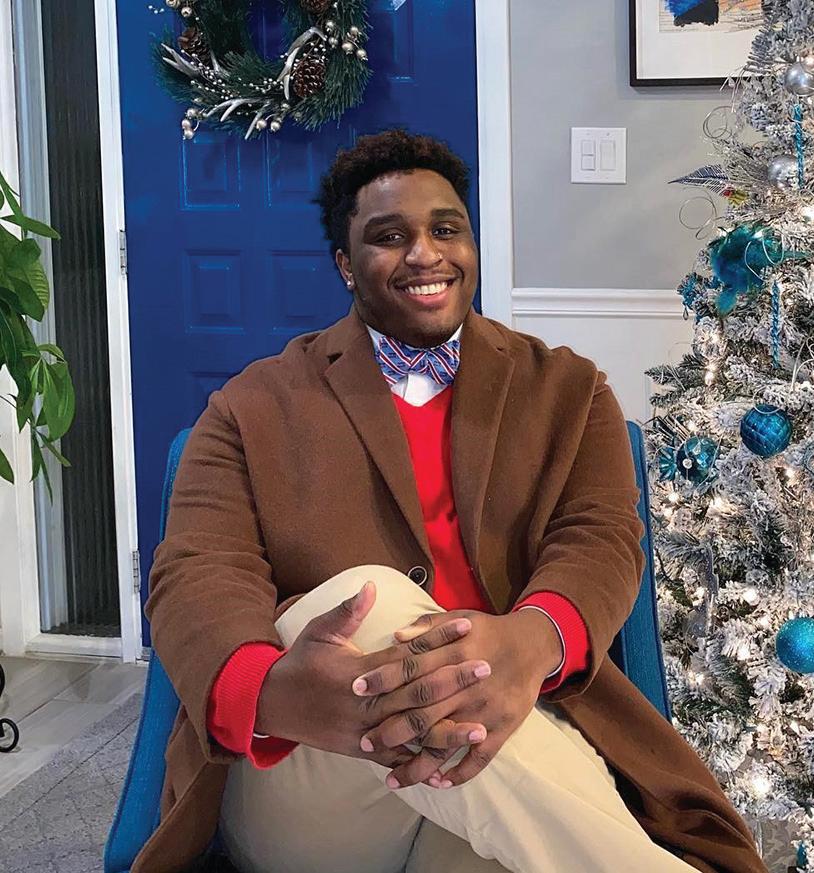
In my mind, the events of January 6th were the continuation of a disease that has persisted in our nation for decades. It is a disease of mistruths, rooted in some of the highest levels of office and paid for by entire industries seeking to profit off public confusion and uncertainty.
The rioters on January 6th weren’t there because they hate the nation or because they’re stupid; they were there as the result of years of echo chamber-like conditions in certain media outlets and social media platforms. They truly thought they were doing the right thing. I don’t say this to excuse any of them. I am happy that so many are going to jail, but at the same time, I also recognize that the one man who needed to be charged most of all has escaped justice thus far.
The rioters of January 6th did not appear spontaneously; Donald Trump and the media manipulation by certain special interest groups, as well as the lawmakers that went along with it all, hold the entirety of the blame.
If we are to prevent another January 6th from happening, and indeed such a thing is still very much a prevalent danger, we must recognize and call out the spreading of mistruths by those that would benefit from our mass-confusion, and fight to stop the manipulation that is killing the stability of the nation.
“Be the change you wish to see in the world.”
- Mahatma Gandhi
In the wake of the 2020 elections, state legislatures around the country are considering policies that, if enacted, would impose additional hurdles on tens of millions of voters nationwide.
These proposed policies are harmful because they would impose additional hurdles on voters such as “ limit mail, early in-person and Election Day voting with such constraints as stricter ID requirements, limited hours or narrower eligibility to vote absentee” (Gardner, A., Rabinowitz, K., and Stevens, H.; 2021).
If enacted, these bills would disproportionately affect minority communities that live in more populous areas where shortened polling location hours would result in increased wait time.
Supporters of these bills state that these additional voting laws are necessary to ensure that public confidence in the integrity of elections is upheld after the past election cycle which was riddled with unsubstantiated claims of voter fraud by then-President Donald Trump and members of the Republican Party.
However, scholars and historians state that “the proposed restrictions would amount to the most dramatic curtailment of ballot access since the late-19th century, when Southern states effectively reversed the 15th Amendment’s prohibition on denying the vote based on race by enacting poll taxes, literacy tests and other restrictions that disenfranchised virtually all Black men” (Gardner, A., Rabinowitz, K., and Stevens, H.; 2021).
These attacks on voting rights should be disturbing to every American regardless of party identification as these bills would disenfranchise a large swath of voters or make it systemically more difficult for citizens to vote. Voting rights are currently under attack in this country, a concerning trend for the country known as the “shining city on a hill.”
Source Gardner, A., Rabinowitz, K., and Stevens, H. (2021, March 11). “How GOP-backed voting measures could create hurdles for tens of millions of voters.” Washington Post. Retrieved from: https://www.washingtonpost.com/politics/ interactive/2021/voting-restrictionsrepublicans-states/
Within the past year the pandemic has drastically changed a good portion of our lives. With lockdown, mask mandates, and multiple restrictions on group gatherings, our lives are anything but normal in this tumultuous time. Politics is no exception to this. Living in an extremely partisan time, coupled with starting the pandemic with arguably the most controversial president in American history, the pandemic has affected the political climate of the U.S.
Because Americans value independence in their everyday lives and in their political opinions, many restrictions due to the coronavirus have not been held in public favor by many. Although these restrictions put public health first to prevent the spread of a deadly disease, Americans have become increasingly critical of government interaction. Many have refused to follow mask mandates and continue to travel and organize large gatherings, despite both government mandates and expert opinions that advise against defaulting from Covid safety guidelines.
“Fight for the things that you care about, but do it in a way that will lead others to join you.”
- Ruth Bader GinsburgStudent
Despite anti-government involvement not being a necessarily recent preference of many citizens in the U.S., the pandemic has definitely amplified these feelings and pushed them onto those who previously have not identified as being opposed to government interaction regarding public health and safety. Americans do not like being told what to do, and the pandemic proves this to be true, even with the spread of a deadly virus that has taken the lives of a half million Americans.
It is also important to consider how the pandemic has affected the politics of marginalized American communities. With the pandemic first seeing its mass spread in China, this has sparked negative feelings about Asian-Americans, as well as China in general, especially when dangerous nicknames such as the “Chinese Virus” have pushed the narrative that the pandemic is the fault of China or Chinese people.
Harmful rhetoric like this has caused a drastic increase in hate crimes against Asian-Americans; a recorded 150% increase in 2020, according to a study by The Center for the Study of Hate Crimes and Extremism. From this, one can conclude that the pandemic has created a safe space for bigotry and racism directed at the Asian community. In turn, this has made the corona virus even more controversial as media coverage of the attacks increase, and rhetoric surrounding it continues to cast a negative light on Asian-Americans.
The political landscape in America has been changing rapidly since around the mid 2000’s due to the introduction of social media. Social media is completely changing the world as we know it, and it’s only going to keep booming. Everyone having their own political views, plus the anonymity or big ‘follower’ size of social media, makes it a hotbed of conflicts.
Moreover, it is part of the reason why America is increasingly becoming more aggressive. When one creates a social media account, they have the option of making it their profile or an anonymous one. Anonymity is one aspect that can fuel one’s aggressiveness.
So, online there are many people who can speak their radical views or can verbally abuse whoever they want with little to no consequences. This is important because it casts aside the “proper” way to discuss problem and allows for just aggressive statements.
Another problem with social media that is increasingly separating the political parties is the “follower and following” systems. On most social media sites, the user controls who they are following and who can follow them.
Picking and choosing who you follow and where you get your information from is something every user does. This adds a great problem of biasness and misinformation.
Users hand select what users they see, meaning most users surround themselves with supporting opinions and no different opinions. Furthermore, this increases the support of a certain belief and eliminates all contrary views. In a political sense, knowing alternate perspectives and views is critical to knowing which policies can work best.
People also get most of their news from social media apps. Since any company or blogger can set up an account, there is a lot of information that is misleading or simply just make-believe. With little fact checking done, a lot of fabricated stories are believed as true with no other opposing side available to the user.
In today’s political landscape, social media is making people completely ignorant of any opposing views other than their own, which in my opinion is a leading reason for why America is seemingly more divided than ever.
The Coronavirus has been going on for over a year now and continues to restrict the lifestyles of people all over the world.
I can still remember the last semester of 2020; it was the most loaded semester of my academic career. I was enrolled in 17 credits, which put me at a total of six classes.
I remember towards the end of the semester, my political science professor at the time spoke about how something called the Coronavirus had made its way to cities in southern California. Despite the media coverage, I still thought it was a hoax.
The semester had finally ended, and I could not wait to be able to turn my brain off and enjoy the summer. Within two weeks of the semester ending, the virus had forced shutdowns ranging from schools and churches to congressional meetings in Washington; Covid-19 had shaken the nation.
The Pandemic has altered many lifestyles and has forced adaptations, but we still have been able to persevere. I have learned a lot about myself and what defines me academically. I have been pushed to limits that stretch much further than my comfort zone; and in doing so, I have become more versatile.
Covid-19 has been a nightmare since day one, but it still has provided us with a learning experience.
The storming of the Capitol was one of the most shocking events that has ever occurred in the history of this country. A violent mob of Trump supporters stormed into the Capitol because they were not satisfied with the results of the election. In my view something ironic about this mob of people is that they claim to be “patriots,” however they are not. Their actions made them all traitors to this nation. Their actions go against everything this country stands for.
A true patriot embraces our political system and will respect the results of the election no matter which candidate wins. Patriots should respect democracy and should simply hope for the best when the different party wins. Rather than being violent, those who are not satisfied with who’s elected should push the winner to do a better job.
However, I don’t think the storming of the Capitol is that shocking. Over the last few years, the country has been extremely polarized and divided. What amplified this division was the pandemic. I believe that isolation and staying home made it easier for individuals to believe in stupid conspiracy theories. The whole QAnon movement is a major factor that contributed to the events of January 6.
We need to encourage civil discourse between different sides and come together. In this divided America, opposing sides must try to see from each other’s perspectives. I think rather than focusing on the differences that divide people, both Republicans and Democrats should focus on the commonalities. At the end of the day, we are all Americans with the same basic desires in life.
“Every accomplishment starts with the decision to try.”
- John F. Kennedy.
“A Person unwilling to use extreme violent force to preserve or obtain their liberty deserves the tyrants that rule them.”
- Thomas Jefferson
It is hard to pinpoint exactly when all of this hyperpartisan behavior and attitude began. For some people, it began when President Obama held office. For others, myself included, it began when President Trump stepped into the political arena. And for a considerable number of people, it began during the pandemic where almost every choice they made was seen as a political statement.
At one time or another, many of us have been sucked into some form of tribalism which over time has become increasingly toxic. This “toxic tribalism” is characterized the same way as general tribalism but taken to an extreme extent.
A general definition for toxic tribalism is “a loyalty to one’s own tribe or social group to the point that dogma and dysfunction become the standard” (Zaid K. Dahhaj, “Why Toxic Tribalism Is Destroying Our Society & What To Do About It”). The results of dogma and dysfunction becoming the standard can be dehumanization of other tribes/factions and cognitive dissonance.
Before I continue with my thoughts on how to break free from toxic tribalism and maintain friendships with people you disagree with, I believe it is important to talk about my experience with these issues. When then-candidate Trump first announced that he was running for president, I immediately reacted to his candidacy with outrage. I started looking at the world around me through a partisan lens and started defining the people around me based on their political ideology. I damaged and even destroyed some of the relationships I had with friends.
Reflecting on these memories is shameful to me. I used my newfound passion for political issues to increase division and be mean. It was not until very recently that I recognized how destructive my behavior and attitude were. But I am trying to be better to make up for years of toxicity.
So how do you maintain a friendship with someone on the other side of the political spectrum? Personally, I am still working on that but I have some advice that has helped me.
When having a conversation about politics with a friend that you disagree with, actively listen to what they are saying. This means giving them eye contact, repeating what they are saying to you, or asking for clarification. Showing respect can be contagious. Have them explain their reasoning and get the root of what they see as the problem.
When asked for a response to their position, I have started replying with, “I disagree. Here is why.” This is not only less threatening to the person you are talking to, but it also forces you to have reasoning for your beliefs which can strengthen them.
It is important that both people should want to remain friends for this to work. I understand that a lot of this advice sounds cliché, but it has truly helped me, and it can help you as well.
247 Anspach Hall Central Michigan University Mount Pleasant, MI 48859
